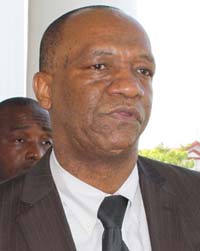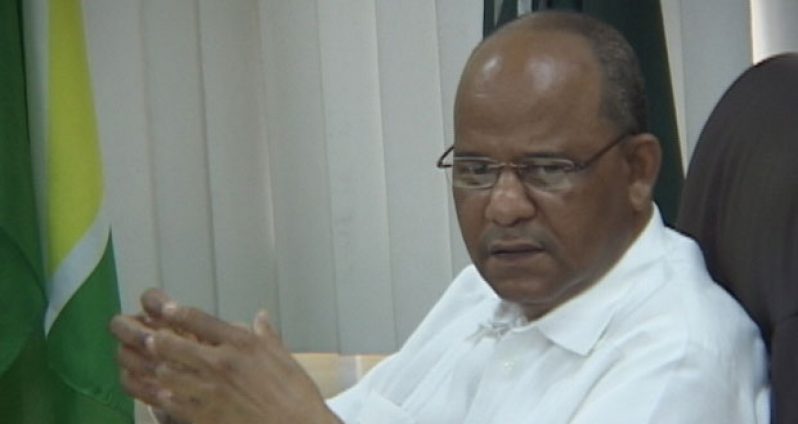A MOVE to influence the electorate on the basis of popularising what is currently in Guyana illegal – in this case marijuana – is “highly immoral,” according to the General Secretary of the ruling party and Home Affairs Minister, Clement Rohee.“If they [APNU] are going to get votes on popularising what is illegal in the country at this point in time, then I think that is highly immoral. What we need to do is promote healthy lifestyles and educate the youths on the dangers of illegal drugs,” he said.
His comments follow indications from A Partnership for National Unity’s (APNU) camp that legalising marijuana is a possibility if it wins the upcoming May 11 General and Regional Elections.
The coalition’s General Secretary, Joseph Harmon, last Friday said, “We are also committed to a review of the full legalisation of marijuana once we get into Government, but we will do it by a study on the matter to be advised….the world is moving in a certain direction and we have to recognise that. We have to take cognisance of the world trends and world patterns. So, we as an APNU, what we are committing to is a review of the laws relating to the use of and sentencing policies in relation to marijuana.”

CHANGING GLOBAL TRENDS
The People’s Progressive Party’s General Secretary, in an interview with the Guyana Chronicle, acknowledged global trends relative to the decriminalisation of marijuana.
Jamaica, only last month, was touted as the pioneer in the Caribbean Region – importantly the Caribbean Community (CARICOM) block – on marijuana law reform. The country’s legislature debated for five hours and passed laws that resulted in the decriminalisation of small amounts of marijuana for personal use. Having up to two ounces (around 56 grams) will only be punishable by a fixed penalty ticket, instead of a criminal charge. The amendment of the law was coincidentally passed on the birthday of reggae legend Bob Marley, who is well-known to have praised weed as “the healing of a nation.”
CARICOM itself, last July, agreed on the establishment of a Commission to examine the possibility of decriminalising marijuana in the Region for specific purposes.
Also, several states in the United States of America (USA) have also legalised the use and possession of marijuana.
All considered, Rohee declined to comment on “what other countries should have done” or “did,” but made it clear that the status quo in Guyana remains the same.
He said, “There is no sign so far, no indication so far, of the Government’s desire to change its position on this issue. The fact of the matter is that in Guyana the laws are against possession and trafficking against narcotics, including marijuana.”
PLAYING POLITICS
The Home Affairs Minister charged that APNU is playing politics with the issue, considering the fact that the issue has been subject to shifting perceptions, of recent.
“Until the Government of Guyana changes its position to the effect that its policy has changed the status quo remains. We are still pursuing a zero tolerance policy,” he reiterated.
Rohee referred to the Rastafarian movement as one section of society where the decriminalisation of marijuana is popular, given that its use is a prominent cultural practice.
“Mr. Harmon is obviously seeking to play politics with [the] Rastafarian movement in the country,” he said.
He was confident that the sections of society where legalising marijuana is a popular idea do not confine their decisions of the future of their country solely on a platform of legalising marijuana.
“There are other indicators that hold their attention, including the many progressive moves we have made in the interest of all Guyanese people,” Rohee said.
The Home Affairs Minister acknowledged that Guyana is heading into early general and regional elections, and there are going to be certain perceptions on the part of the Guyanese people on whether economic and social progress have been made.
However, he stressed that the latter will be the basis for judgments on the move forward.
“There is no problem with these [economic and social advances] being the indicators of progress. It is for the people to judge whether there has been economic and social progress in the country, compared to what [obtained] under another regime and compared to what existed before. The track record of the PPP/C speaks for itself,” Rohee said.
His view is that the PPP/C has made significant advances in both spheres, in line with the principle of the party’s founder, the late Dr. Cheddi Jagan, who held the view that Guyana’s development must have a “human face” to it.













